In a country founded upon the exchange of ideas, on the freedom of individuals to communicate and disagree, Laura Ingraham encouraged silence.
“It’s always unwise to seek political advice from someone who gets paid $100 million a year to bounce a ball,” Ingraham said on her FOX News show, The Ingraham Angle, in 2018. “Keep the political comments to yourselves, or as someone once said, shut up and dribble.”
Ingraham’s comments came after basketball superstars LeBron James and Kevin Durant voiced criticism of then-President Donald Trump. To classify Ingraham’s message as condescending, demeaning to the intellectual capabilities of Durant and James, would be an understatement. But to categorize them as unique would be wholly inaccurate.
In the years prior and since the infamous “Shut up and dribble,” remark, there has been a full frontal assault on the freedom of professional athletes to speak their minds on political and social issues. There is a fervent, underlying belief that when those in sports don their jerseys and take the field of play, they forfeit their right to logical autonomy off of it. This position ignores an extensive history of activism in sports, handcuffs the humanity of athletes to the game that they play, and reduces the authenticity of the American discourse.
A brief look into the past reveals a plethora of examples of athletes contributing to social movements and conversations that would not have been better served by the shutting of those athletes’ mouths. In 1961, basketball legend Bill Russell refused his assigned role as a silent character in the production that was discrimination, boycotting an exhibition game in Lexington, Kentucky after he and his Black teammates were refused service at a restaurant. In 1967, boxer Muhammad Ali brought his booming voice to one of the most crucial war discussions in world history, claiming “no quarrel with them Vietcong,” and backed it up with his actions, declining to fight in the Vietnam War and sacrificing the world title he had worked so hard to claim. In 1968, sprinters Tommie Smith and John Carlos showed the world the uglier tint of America following their Olympic 200-meter victory, taking the podium in black socks and gloves and raising their fists to protest racial segregation.
Many propagators of the “Shut up and dribble,” mindset paint athlete activism as a modern concept. But any retracing of past American political struggles reveals athletes taking center stage, important cultural figures expanding their societal participation outside the bounds of their sport.
The moment an athlete steps up to the podium at a press conference or prepares to make a statement on social media, their societal significance and their personal beliefs meet. While they are not tacitly designated as political spokespeople, they are human beings with a mind and a microphone. They have the right to say as much as they would like with the platform they are provided, just as their audience has the right to listen, or ignore them when they do.
Pundits like Ingraham take aim at athletes for speaking on topics they are perceived to know nothing about. For in the eternal debate of brains vs. brawn, anyone physically gifted enough to make millions of dollars playing a sport must possess a correspondingly low level of cognitive ability.
Not every athlete that broaches a social issue is an expert on the subject they are speaking of. But a lack of unrivaled knowledge on a subject has never been a disqualifier for discussing it in any other setting. Few water cooler political discussions are thwarted by one of the participants telling their coworkers to “shut up and data analyze.”
In a world where nearly as many people recognize basketball superstar LeBron James as President Joe Biden, the stances athletes take on affairs that affect the general public truly matter. Reducing their words to insignificant, jock babble is not only an underestimation of their capabilities, it grossly undershoots the amount of influence they carry. And regardless of whether or not you agree with the things athletes say, it is undoubtedly better to have them speaking up than staying silent.
The fundamental principle of American democracy is that consensus is difficult to come by, and that there is absolutely nothing wrong with that. Every individual is endowed with their right to an opinion and a voice with which to espouse it, and the more people that utilize those capabilities, the more accurate and representative conversations surrounding important issues will be. Blocking out any voice on the basis of their profession is a grave mistake, and a violation of the marketplace of ideas this nation is designed to be.
The effort to reduce professional athletes to faceless, voiceless husks in the name of proper intellectual exchange is one misguided in its intent and vile in its execution. Contributing thoughts and opinions on important issues is a fulfillment of the duty owed to oneself, and when those issues have a profound impact on others, it becomes even more essential to use whatever platform one has to call attention to them, regardless of the foundation on which that platform rests.
No occupation should be viewed as so specialized or singularly-focused that its workers are incapable of offering commentary on anything other than said job. The reason professional athletes often draw such ire is two-fold: because they are believed to be nothing more than toys that have forgotten their programming, physically dominant individuals that have no consistent need for mental aptitude, and because their opinions are often the ones that make headlines, that the general public is forced to hear. But these detractions are not valid reasons for taping over the mouths of the world’s athletic elite. In fact, the cultural standing athletes possess and the weight their words carry make their involvement that much more vital.
In modern society, the margin for apathy is ever-decreasing. While every individual, athlete or non-athlete, microphone or no microphone, is free to keep their beliefs as close to the vest as they desire, it is important to maintain strong convictions regarding the matters that affect the lives of people across the country on a daily basis. And when those convictions can be debated and exchanged, we make legitimate progress as a people.
Every voice has its purpose. And relegating any one of them to silence, especially ones that echo as loudly as those of professional athletes, only serves to diminish the quality of the conversation.

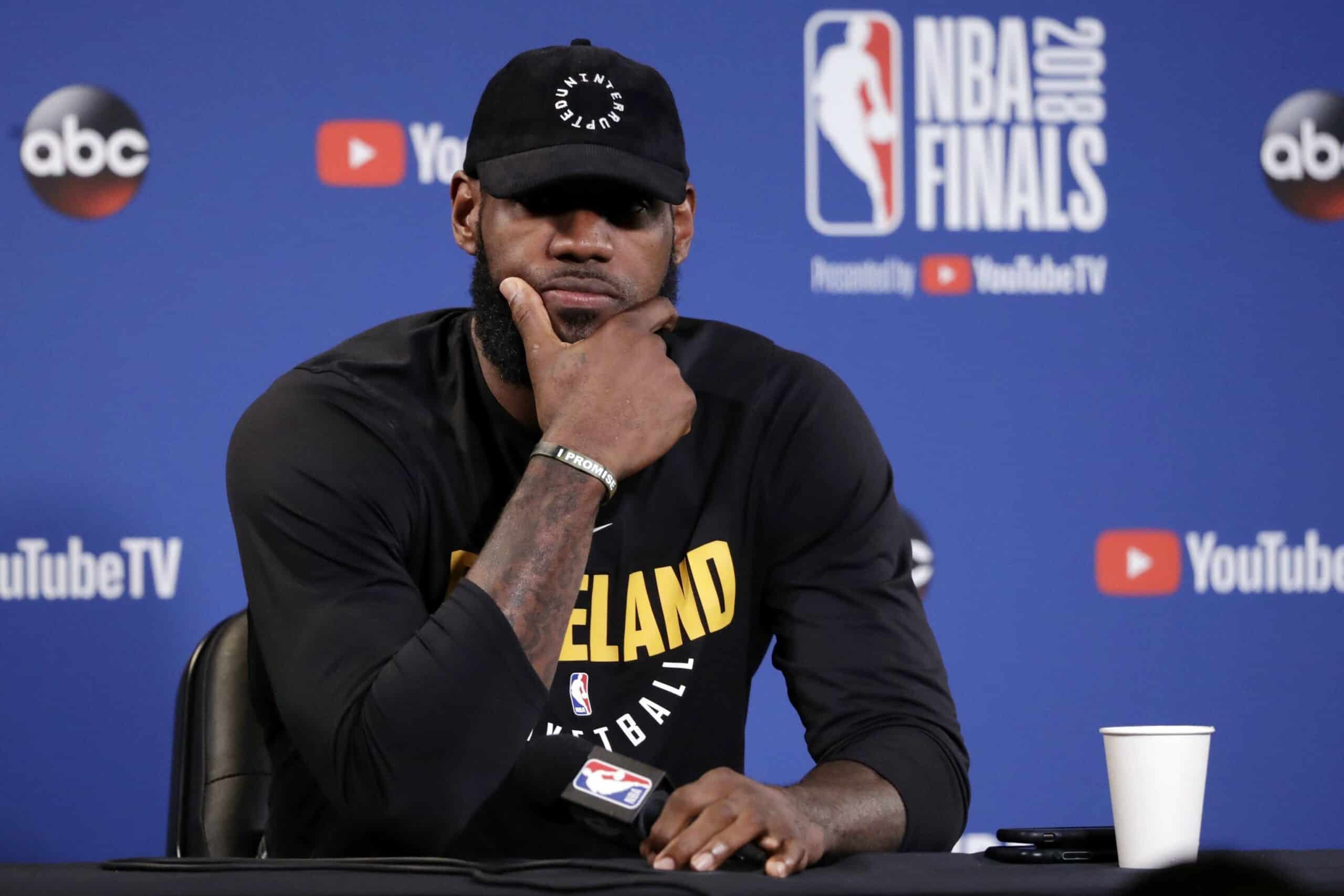
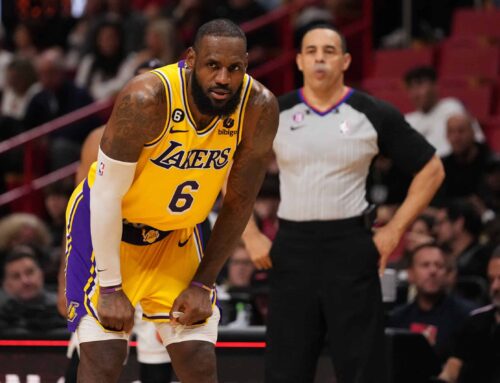
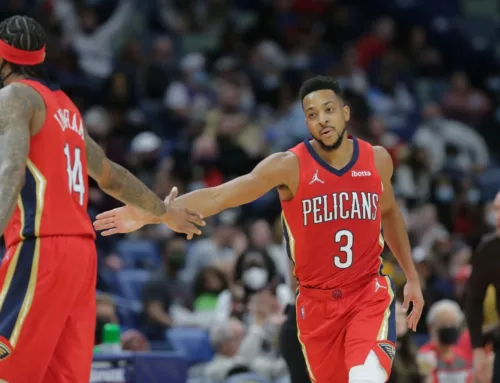
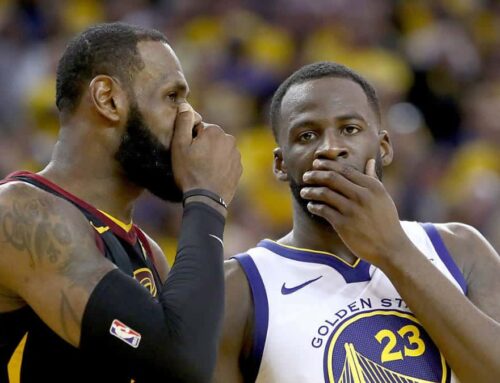
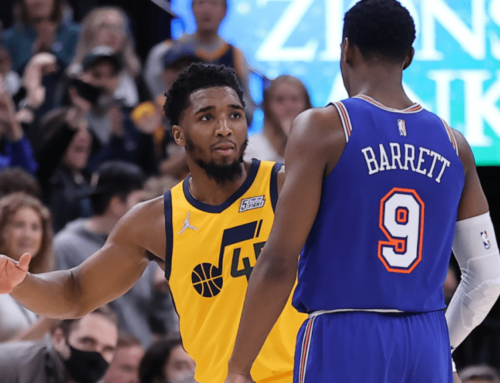
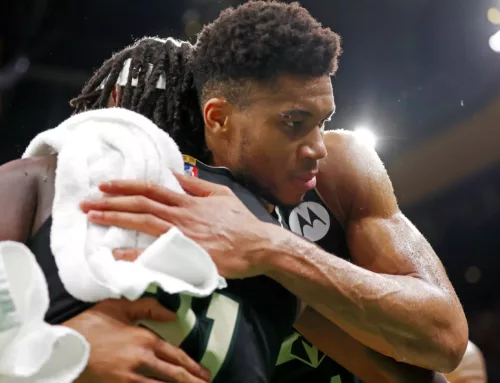
Leave A Comment